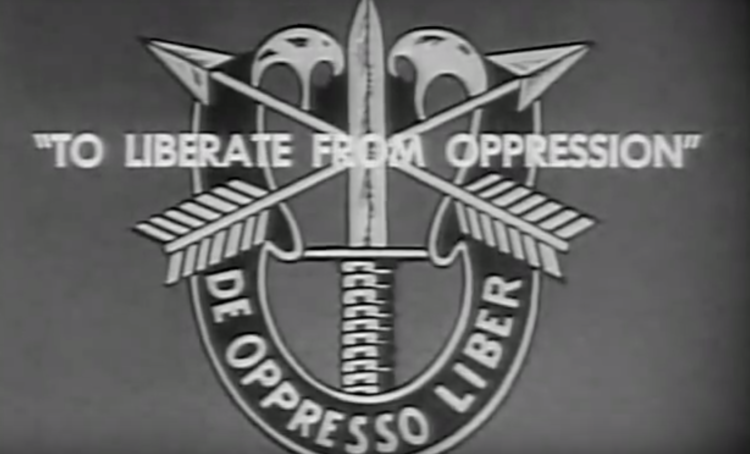JM: Before there was Vietnam, there was Laos for the Green Berets. What was the task and purpose of “Operation Hotfoot”? What were your impressions of Laos back in 1959?
WB: The North Vietnam-supported Pathet Lao guerrillas were taking over parts of Laos. We were assigned the mission to train the Laotian army units in self-defense. Teach them how to organize and train in the art and tactics of war, using more modern weapons.
My impression of Laos was, it was the backwater of the Orient. A pitiful excuse for a nation.
JM: You were among the very first Special Forces troops into Vietnam. Two ODAs flew in on a C-130 and dropped ramp in At Tan Son Nhut airport in Saigon in 1961. What were you thinking that day? Did any of you have any inclination as to the escalation that would happen in Vietnam or was it just another mission to you, like in Laos?
WB: I was just thinking that it was another training mission. We were in civilian clothes. No one among our group had any idea that it would escalate. We were forewarned, however, to be prepared to protect ourselves if we were attacked by the Viet Cong. That training mission cost my team three team members. Eleven years later it all ended.
JM: In the book, you write about plowing into the jungle with a 12-man team, clearing a section of forest, building an A-Camp, and training the locals for war against the enemy. It seems your team did this with little more than determination and improvisation. Today, we would call this the “man test.” Amazingly, your team passed that test, including direct combat with the enemy. Could you describe this experience of going into the jungle with almost nothing and beginning to conduct an unconventional warfare campaign?
WB: We did drive two old 2-1/2 ton trucks with Jurai Yards as far past the village of Plei Mrong as we could before the jungle stopped us. We were very close to the Laotian border west of Pleiku. The team leader said, “We will build our camp here.” With axes and crosscut saws and loads of C-4, we cleared out the trees and undergrowth. We worked from morning ‘til night. Hired natives to build bamboo huts and a messhall and dispensary. We also trained at the same time. We had to introduce to the native yards what a weapon was and how to use it. We would use at times three interpreters: English, French, Vietnamese and then Jurai language. What a nightmare.
We conducted patrols, ambushes, and got into firefights. We also continued to build our camp. Dug trench lines and a berm. Built a 32-wire double apron barbwire fence around the camp and defended it all.
No matter what you may call such actions today, I can assure you, under those circumstances, it is pure hell!
JM: One topic briefly mentioned in your book was a CIA agent who worked with your team during the early years in Vietnam. How would you describe the relationship and interactions that Special Forces and the CIA had at this time?
WB: The relationship with the CIA agents was superb. You could not ask for a better relationship. They supported our teams in everything we did. They supplied us with weapons, money, and other equipment. They directed our actions and locations. It was a great relationship.










COMMENTS